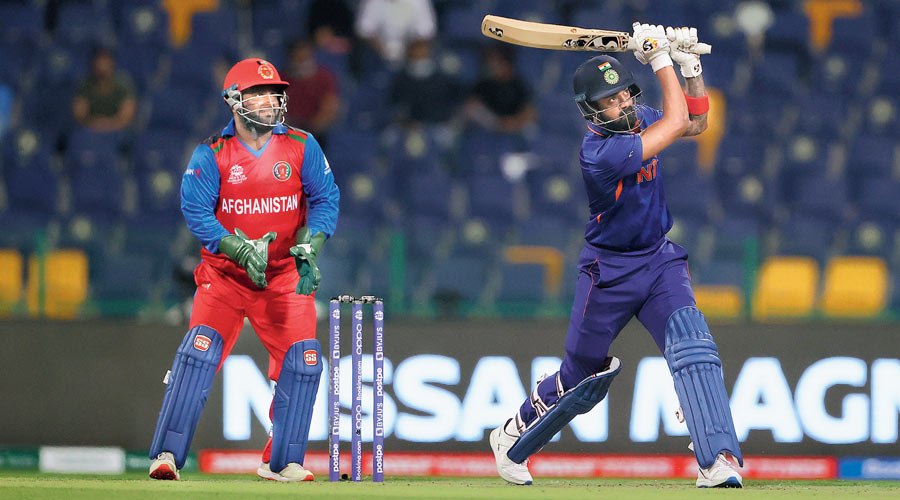The scars of India’s defeats against Pakistan and New Zealand will take time to fade, a strong performance notwithstanding. Unless Virat Kohli’s men make the semi-finals of the T20 World Cup by some quirk of fate, they will have to carry the pitfalls of those crushing losses.
Midway through the India innings in Abu Dhabi on Wednesday, the BCCI confirmed Rahul Dravid as the next head coach. The former India captain will have his hands full as they start the process of rebuilding the side in the game’s shortest format.
For the time being though, the Indians returned to their devastating best as they made mincemeat of a hapless Afghanistan attack. A target of 211 was tough for this Afghanistan side and they never really were in contention.
Taking a more realistic approach, their batters did just enough to ensure that their net run-rate didn’t dip too much. As a result, they remained at second spot in Group 2 while India were placed fourth with their net run-rate moving into positive territory following the 66-run victory.
Ravichandran Ashwin’s presence in the middle overs also helped stifle their chase. Playing his first limited overs match since 2017, he and Ravindra Jadeja bowled in tandem at a crucial stage.
Captain Kohli’s tough luck with the toss continued. However, there wasn’t much dew during the match as batters of both sides made the most of a good wicket.
Afghanistan were dealt a blow before the start when Mujeeb-ur Rahman failed to recover from his injury. But the rest of the bowlers were not up to the task in the face of a marauding Rohit Sharma and KL Rahul.
The failure to provide a solid foundation haunted India in their previous matches. Sensing the Indians’ troubles against the New Zealand spinners, Afghanistan relied on Mohammad Nabi and Sharafuddin Ashraf to provide the breakthroughs.
But the stark contrast in class was apparent as the bowlers struggled to find their rhythm. In their previous two matches, India managed a total of three boundaries against spin in 16 overs. On Wednesday, five boundaries and three sixes came off seven overs bowled by the spinners.
The Powerplay overs yielded 53 and India never looked back. With no mystery spin or express pace on offer, the openers carted the bowlers all around. Even the arrival of Rashid Khan did little to disturb Rohit and Rahul’s marauding ways.
Rahul took a while to join the party but Rohit looked in his elements right through. The short balls were dispatched quickly while those pitched up were driven through the arc without hesitation. With their pacers bowling in the 130-135kmph range, it was easy to strike over the top.
The openers added 140 before Rohit (74 off 47 balls) failed to find the elevation in an effort to go over the top. Rahul (69 off 48 balls) followed a little later and then Rishabh Pant and Hardik Pandya stepped on the accelerator. As many as 65 came off the last four overs as the unbroken third wicket pair put on 63 off 21 balls.











